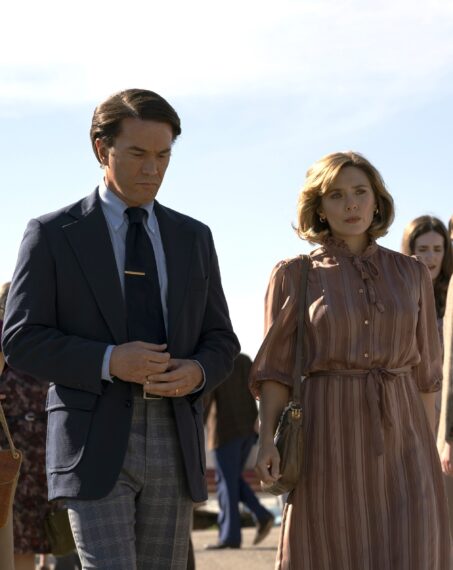The Pitch: In 1996, a ragtag team of Canadian engineers had a great idea — a handheld box that would not just make phone calls, but also send email… But no idea how to run an actual company. Fortunately or unfortunately, depending on how you think about it, they stumbled across a shark in a business suit named Jim Balsillie (Glenn Howerton), who didn’t immediately see the potential in their nascent device, but once he did, pounced on the opportunity to bring it to market.
And so the tragic tale of BlackBerry goes, as Research in Motion co-founders Mike Lazaridis (Jay Baruchel) and Douglas Fregin (Matt Johnson, who also directs) get swept up in the success of the game-changing smartphone, Mike atte2mpting to develop a business edge as co-CEO with Jim, while Doug proves to be too much of a kid at heart to fit in with the increased demands of a successful tech company. Technology issues, a hostile takeover attempt, and Jim’s shadier business practices all threaten to take down the company, but are unsuccessful; however, there’s a guy named Steve Jobs in Cupertino who’s got a big new idea…
For Getting Things Done (TM): It’s hard to top The Social Network, when it comes to stories of technological brilliance and business malfeasance, if you’re not David Fincher and/or Aaron Sorkin. But BlackBerry holds up well as a blunt portrait of BlackBerry’s ascendance as well as its eventual decline, with cinematographer Jared Raab riffing on the documentary-esque filming approach of Succession to keep the action kinetic.
That’s an incredibly important thing to note, given that the action here is largely just dudes talking business deals or data packet delivery. In order to showcase just what made the BlackBerry device so revolutionary, Johnson and Matthew Miller’s script has to dig hard into the particulars of what transmitting information wirelessly meant in 1996 and beyond; here in the days of reliable LTE or 5G cellular service anywhere in the world, it’s a bit of a struggle to remember the days when networks would get overloaded regularly by too many users.
(Anyone who ever attended SXSW from 2008-2010 will probably remember watching AT&T subscribers with iPhones wandering around outside the Austin Convention Center, hoping for a signal despite the masses of other AT&T subscribers who surrounded them.)
To Johnson and Miller’s credit, they actually manage to explain the more technical aspects of the story in a way that, even if you don’t understand the particulars, does make it clear that Mike Lazaridis was ahead of his time in solving the biggest technical hurdles holding back digital messaging. It’s a big factor in the film’s power, because once we believe in Mike’s genius, his eventual descent into obsolescence becomes that much more tragic; a brilliant man whose greatest weakness is not being able to see the real problem right in front of him.

Blackberry (IFC Films)















































































